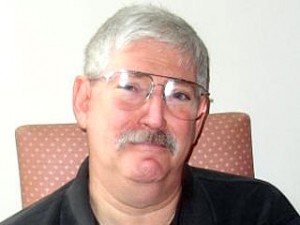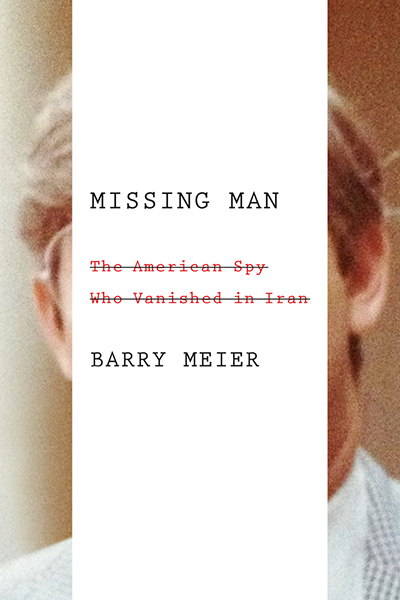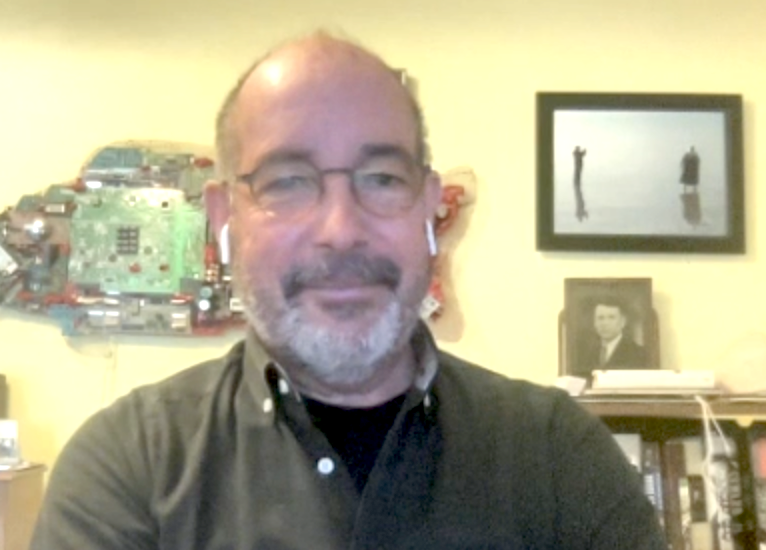Ex-FBI agent Robert Levinson became a private investigator. He also had another life — a consultant for the C.I.A. In 2007, Levinson, then 59, disappeared on Kish Island, in the Persian Gulf off the coast of Iran. He has been missing ever since. Barry Meier, a veteran New York Times reporter, has written a compelling book on the case. The following is an excerpt.
Prologue
November 13, 2010, Gulf Breeze, Florida
By Barry Meier
Rain splattered against the windshield of her silver- gray BMW as Sonya Dobbs pulled up to a security gate blocking the street. It wasn’t much of a gate, at least by Florida standards, just a long, rolling fence stretching across a road. She punched a code into the gate’s keypad.
After two unsuccessful tries, she used her cell phone to call her boss, David McGee, who opened the gate from inside his house. It slid back and Sonya drove through, a laptop resting on the passenger seat.
Sonya’s Saturday night had started very differently.
She had planned to spend it sorting through photographs. Sonya worked as Dave’s para legal at a large law firm called Beggs & Lane located in Pensacola, a city at the western end of Florida’s Panhandle, the narrow, two- hundred- mile- long coastal strip tucked between the Gulf of Mexico and the states of Alabama and Georgia.
Sonya wanted to carve out a second career as a photographer, and she had been on a chase boat the previous day in Pensacola Bay, snapping pictures of a new oceangoing tugboat, christened Freedom, as it went through test maneuvers. The photos showed the big black and gray tug slicing through the foamy water under a blue sky filled with white, puffy clouds. A maker of some of the boat’s parts had ordered pictures, and Sonya was happily spending her Saturday evening playing with different ways to crop the images.
Then the phone rang, and she heard a familiar voice on the other end of the line. Over the past three years, she had spoken to Ira Silverman hundreds of times, if she had to guess. Most days, the retired televi sion newsman phoned Dave at least once.
Their conversations were always about a mutual friend, Robert Levinson, a former agent with the Federal Bureau of Investigation turned private investigator. Sonya had never met him, though she felt as if she had.
Bob disappeared in 2007 while on a trip to Iran. Dave and Ira, who had both known Bob for years, were trying to help his desperate family find him. Months after the investigator went missing, Dave convinced Bob’s wife, Christine, to ship his work files to Beggs & Lane. Sonya had read through them and or ga nized the reports. She was a natural snoop, at ease with computers. Before long, she had tracked down Bob’s email accounts and figured out the passwords.

As she walked through the record of his life, she learned a secret that Dave, Ira, and Chris already knew: the explanation that U.S. government officials were giving out publicly to explain Bob’s reason for visiting Iran wasn’t true, at least not the part that really mattered.
Since the investigator’s disappearance, there had been reported sightings of him in Tehran’s Evin Prison, the notorious jail where political dissidents are tortured or killed. Some tipsters had come forward
to claim that the Revolutionary Guards, the elite military force aligned with Iran’s Islamic religious leaders, were holding him at a secret detention center. His family had made public pleas for information about him, and the FBI had assigned agents to the search.
But the hunt for the missing man had gone nowhere.
Ira’s call was about an email he had gotten earlier that Saturday containing a message that read like a ransom note. He had received similar emails before and had passed them on to the FBI. But this one
wasn’t like the others. This email had a file attached to it. Ira told Sonya he couldn’t figure out how to open the attachment and was forwarding it to her to see if she could. The email read: This is a serious message
Until this time we have prepared a good situation for Bob and he is in good health. we announce for the last ultimatum that his life is based on and related to you You should pay 3000000$ (in cash) and release our friends: Salem Mohamad Ahmad Ghasem, Ahmad Ali Alarzagh, Ebrahim Ali Ahmad.
We are waiting for your positive answer without any preconditions. We would announce our way to receive the money. Sonya clicked on the email’s attachment, but nothing happened. She didn’t recognize the file’s extension, the three- letter code that tells a computer which program is needed to open a file. She suspected the extension—.flv— signified it was a video file, and she hunted around on the Internet for information about a recommended player.
Finding one, she downloaded the software and clicked again on the attachment. This time, the file launched and a man’s gaunt face appeared, seemingly staring out at her. He had closely shorn gray hair,
a moustache, and sunken cheeks covered by stubble. He started speaking in a deep, raspy voice. Strange music played in the background, rhythmic instruments accompanied by a singer’s droning call.
After a few seconds, the camera pulled back and Sonya could see that the man was sitting in front of a gray stone wall in what appeared to be a stark prison cell. The polo shirt he wore looked threadbare and hung on his frame as though it was several sizes too big for him. Part of the shirt’s right sleeve was gone. There was nothing immediately threatening about the video. Masked jihadists weren’t standing over the man brandishing guns or swords, and there wasn’t a black political banner hanging behind him. Still, the video was disquieting.
The man’s arms didn’t move as he spoke, suggesting that his hands, which couldn’t be seen in the video, might be lying manacled in his lap. He struggled to stay calm and to keep his words mea sured.
Occasionally, his voice came close to breaking and he would briefly close his eyes, pause, or gesture by turning his head.
He said: For my beau— my beautiful, my loving, my loyal wife, Christine . . .and my children . . . and my grandson . . . and also for the United States government . . . I have been held here for three and a half years . . . I am not in very good health . . . I am running . . . very quickly out of diabetes medicine . . . I have been treated . . . well . . . but I need the help of the United States government to answer the requests of the group that has held me for three and a half years . . . And please help me . . . get home . . .
Thirty- three years of ser vice to the United States deserves something . . . Please help me.
Dave McGee opened his front door and ushered Sonya out of the rain. They went into the kitchen, where the lawyer’s wife, Joyce, was waiting. Sonya put her laptop on the table, opened it, and launched
the video. Dave wasn’t positive that Bob was the man on the tape.
The last time he had seen the former FBI agent, he resembled a big, overweight teddy bear with a mop of hair. The man on the tape was so thin that the skin on his throat sagged. Dave realized that the only
way to know for sure was to call Christine. Sonya dialed her number, and when Chris answered, she put her cell phone next to the computer and clicked on the video. A few moments passed.
“That’s Bob’s voice,” Chris said. “That’s Bob.”
Since the appearance of the 2010 video and some photographs that followed, Bob Levinson has not been seen alive. His fate is unknown. The Iranian government continues to claim that it knows nothing about his him.The Obama Administration, despite having evidence pointing to Iran’s likely role, has yet to publicly confront Tehran.
Excerpted from “Missing Man: The American Spy Who Vanished in Iran” by Barry Meier, published May 3 by Farrar, Straus & Giroux. You can purchase the book by clicking here , at book stores or Amazon.





